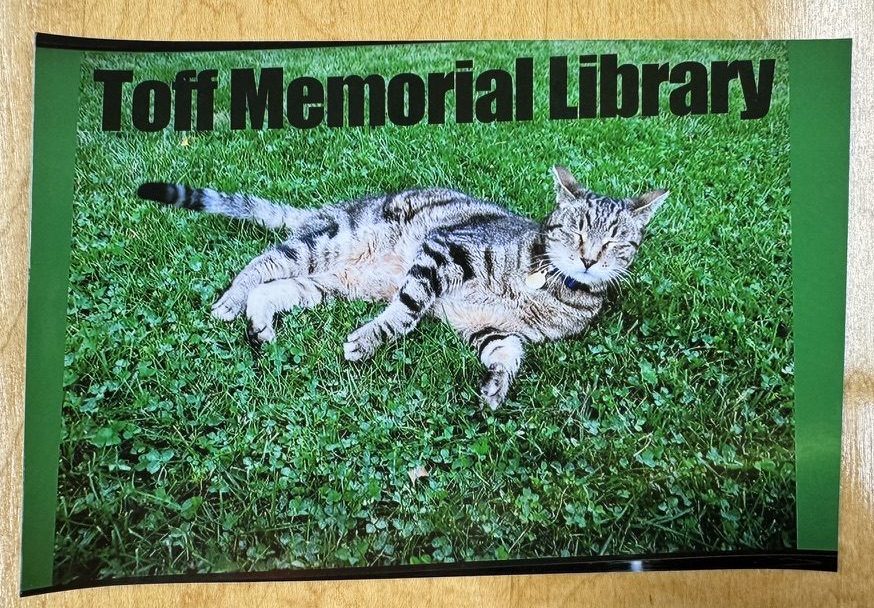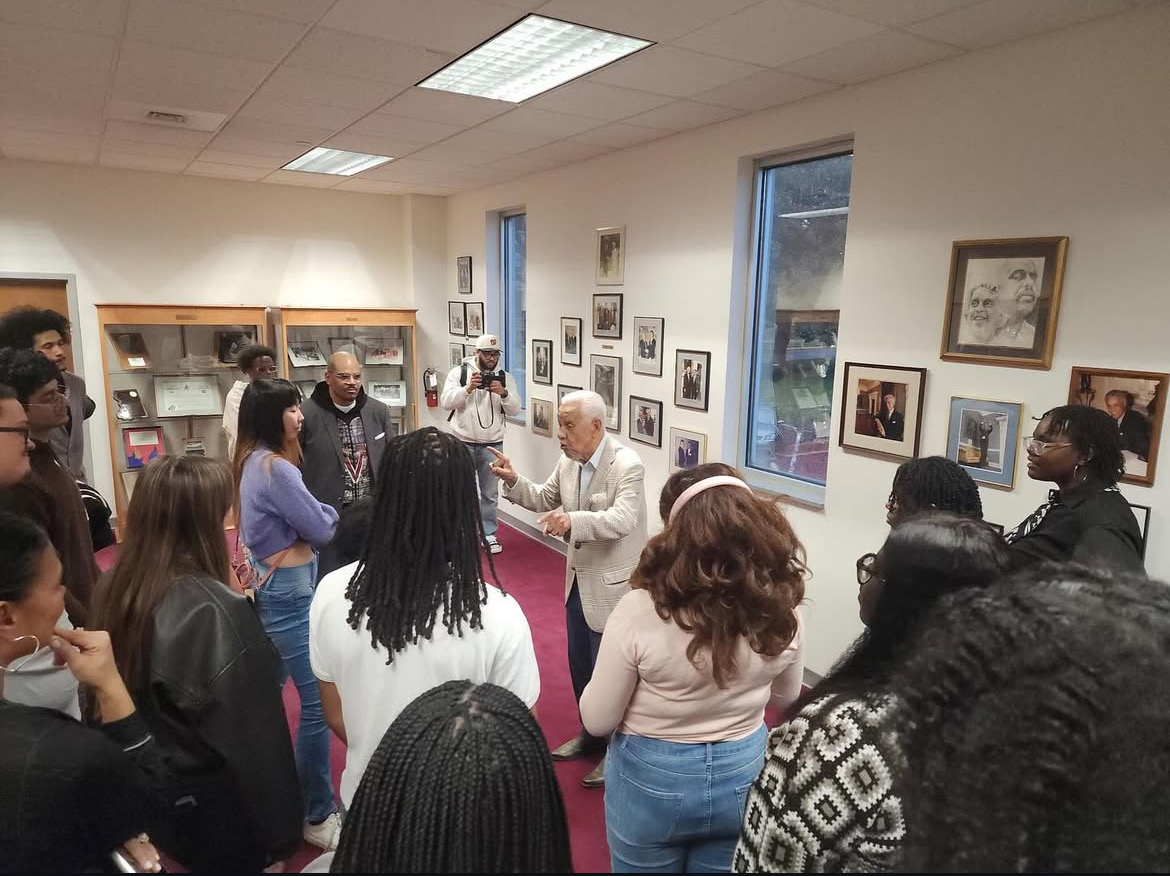On Feb. 25, Carls for Religious Understanding (CRU) gathered to explore the significance of music in one’s life. The event, titled “Music That Inspires: Sacred, Secular, and Special,” was open to all students to attend and to reflect on certain songs or pieces of music that have impacted or inspired them. Over catering from Tokyo Grill, students engaged in discussions centered around questions such as how music shapes your sense of who you are, and — if one is spiritual — how music inspires or connects you with your faith.
CRU, which meets on Tuesday throughout the term, fosters interfaith dialogue on a variety of pressing and reflective topics. Chaplain’s Associates (CAs) first introduce the theme, sample questions and facilitate discussion among small groups. At the end, attendants come together to discuss their reflections.
On Jan. 14, CRU explored “Religion in the Face of Injustice” in honor of Martin Luther King Jr. Day, tackling complex questions about the relationship between faith, justice and social activism. CRU asks students to reflect on whether there are times when faith should challenge unjust governments or laws, and whether there are lines that should not be crossed. Participants are also encouraged to discuss the role of religion in social activism. As a sample question asks, “Should religion balance the inward pursuit of spirituality versus the outward practice of liberation? Is there tension in your experience or are they complementary?”
More recently, CRU met on Jan. 28 to explore the relationship between religion and immigration. The discussion explores how religions understand borders, refugees and national identity, asking students to reflect on what their traditions and practices say about immigration right now.
“One of the things we struggle with in CRU is having a topic that is not just Abrahamic, because there’s a lot of us that work in the chapel that are from an Abrahamic background,” Griffin Momsen-Hudson ’25, a CA, said. He acknowledged the challenge of crafting discussions that are inclusive of all spiritual perspectives.
“[There are] things that a lot of us assume are in every faith or spiritual practice, which aren’t,” Momsen-Hudson said, citing questions about the nature of God as an example. “So we have to work to really make them work for everybody. And I think that was successful this time.” Moreover, CRU has undergone significant changes over time, particularly in how it invites participants. Momsen-Hudson noted that the group was once invitation-only.
“At least, my conception of CRU has changed,” he said, “It used to be invite-only, and so the thought there was to not have Jews and Christians dominate, because they are active and sizable populations on campus. I think moving away from that has been a good idea to let more people that would be interested in having a conversation share, as opposed to people that the chapel already knows and knows to reach out to.”
“The changes to CRU were driven by a desire to open up the discussion to the wider campus community, and to be particularly intentional about choosing topics which students, regardless of their background, could engage with,” Garret Pauly ’25, a CA, said over email. “Previously, at least in my experience, CRU was a space cultivated for students already engaged in religious and spiritual life on campus, and often for those students who were a part of organizations like the Muslim Student Association, Jewish Students of Carleton, or Fellowship in Christ.”
Momsen-Hudson credited College Chaplain Rev. Schuyler Vogel ’07 with recognizing the dwindling attendance and advocating for broader outreach. “I think at the beginning of this year, Schuyler noticed that CRU was kind of diminishing in who had come,” he said. “It would be like the CAs and maybe one other person. So it was really just CA hangouts, and it was fun, but we weren’t meeting the point of what CRU actually was.”
The change has made a noticeable impact. “We’ve seen attendance go up, which is terrific,” said Vogel. “[And] we really try to have themes of CRU this year be relevant to what’s going on in the world and in that moment.”
“The past term of CRU has been a wonderful time to connect with newcomers, and reach students not previously engaged with Chapel programming,” Pauly said. “And, though myself and other students have brought up how the topic relates to their religious or spiritual tradition, other voices have shared experiences from their daily lives or those otherwise not connected with religion at all.”
CRU’s topics have evolved to reflect current events and student concerns. This year, discussions have ranged from the role of ghosts and spirits around Halloween to political engagement during election season. “We did one about resisting injustice in January to the time of MLK and also around the inauguration,” Vogel said. “We try to have a sense of the pulse of where the campus is and what people are thinking about, maybe worrying about, or wanting to process.”
“[This is] somewhat different than in the past, where it was a bit more theological,” Vogel said. “You would talk about things like the afterlife or beliefs in God or ideas of sin or salvation. All of those are interesting topics in many ways, but they are more narrow. They’re timeless, which is powerful, but they’re less urgent.” Additionally, Vogel notes that “unless you’re really religious, they don’t necessarily speak to you.”
The shift in focus from theological debates to contemporary issues has made CRU more accessible. By broadening its scope, CRU has become a space where students from all backgrounds can engage with existential and ethical questions, regardless of their religious or spiritual affiliations.
“We try to make the themes really relevant to people in this moment and also be accessible to people who may not identify as religious or spiritual, but still care about the big questions of the time and of life,” Vogel said.
“And we really try to tell people, CRU is for anyone who wants to wrestle with the question of the week and wants to wrestle with certain questions, [and] you don’t need to have a religious tradition,” Vogel said. “The bar for entry has gone down in a way that lets people who want to be engaged sincerely with big questions feel like they can be welcomed. You don’t have to be a certain thing, or believe in a certain thing.”
“We don’t have every CRU be political because we don’t want to burn people out,” Vogel said.“And so that’s part of our music and art [CRU themes]. For the last two weeks, we did some pretty heavy political ones. I think we are trying to be that space where people are meeting at those moments of conversation that people are having. I think there’s always room to grow, and we’re always open for suggestions as well.”
The planning process for CRU discussions is collaborative, with CAs brainstorming topics in weekly meetings. “I think it’s a dynamic, engaged and organic way of coming up with topics,” Vogel said. “They come out of 14 Carleton students who are all living their lives in addition to being CAs and are thinking about things — asking questions about who they are and what this time is.”
One recent discussion focused on texts that hold personal significance. Originally titled “Sacred Texts,” CAs broadened the scope to “Sacred, Secular, and Simply Special.”
“We had one two weeks or two times ago, on texts that mattered to us,” Vogel said. “And we started off talking about sacred texts. We said, we have to make it so it’s for everybody, and so we renamed it ‘sacred, secular and simply special. From my table, I remember we talked a lot about childhood favorite books.”
Pauly also emphasized the importance of making CRU a space for all students. “CRU is, first and foremost, about learning and listening to the experiences and thoughts of your Carleton peers,” Paulysaid. “Ultimately, the chance to listen to and learn from an ever-expanding array of different people strikes me as advantageous for the future of CRU.”
While students and chaplains gather around the Alumni Guest house in small tables, the intimate environment is a relatively recent change. “One of the changes recently in CRU in the last few years, which predates me, but CRU used to be a big single discussion around the table,” Vogel said. “A couple years ago, they made the decision to go into smaller groups. I think I prefer the small group, because that’s less pressure to facilitate, and people can be more vulnerable in this model.”
The goal of CRU, ultimately, is to foster meaningful connections and shared learning. “I think what we want when people come to CRU is to feel like they are having an experience of connection, sharing, vulnerability, and the ability to learn and grow together based on a simple topic,” Vogel said. “There can be some profound sharing about something that’s very uncontroversial, like music, and there could be some sharing about things that are very pressing and stressful, like the national scene.”
“I think that’s a special thing. It lets people go through the world together. It lets people figure things out, to learn, to be curious, to share, to reflect for themselves what they think about these things,” he said.










